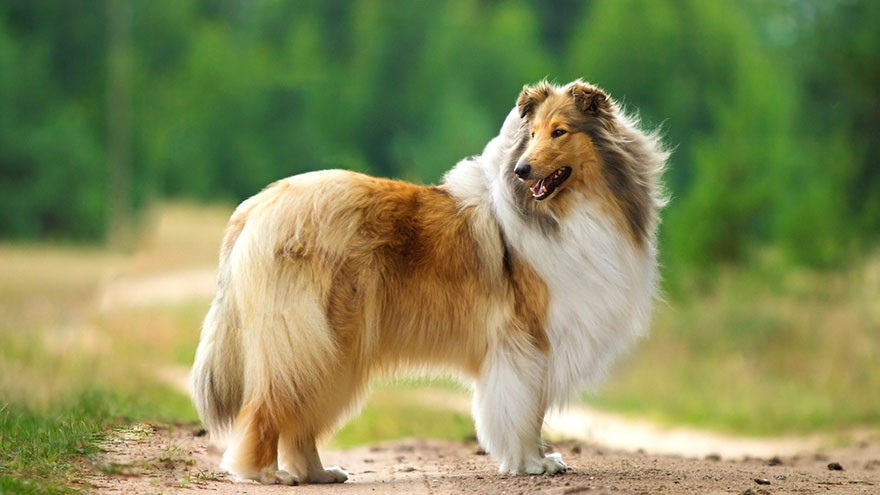Collie Health Guide
Collie owners, breeders, and veterinarians have put together an extensive network of information about the health needs and special requirements of this very popular breed.
Most breed owners can depend on an intelligent, active, and healthy pet that may bring only a few problems to the family, although some can be serious.
Keep in mind that due to its great popularity, the Collie breed has been somewhat weakened by over-breeding. For this reason, some dogs have shown poor temperament because of careless handling in the early months.
Collie Health Guide
Most problems that you might hear about can be avoided by working closely with a top-quality breeder. This way, you have the confidence that you will end up with a healthy puppy from good parents, as well as a puppy that has been properly socialized with both people and other animals.
The Collie has always been a working dog, which is why when the breed is owned as a family pet, it receive regular exercise, especially in a nice sized yard or at a local park. Although this breed is not fond of the leash, with good training and a caring owner, it is quite cooperative.
This breed has a dense coat that gives it excellent insulation in both hot and cold weather, though it is best to have shade and water available at all times during the summer months. Then, the Collie, like many large dogs, does not live an exceptionally long life, usually about 10 years. To keep this pet healthy and strong, you want to feed it only top-quality food. In fact, many purebred dogs do best with fresh, homemade meals.

Talk to your veterinarian but you will probably hear that a diet of high quality protein and some fats, with vegetable enzymes is best. In addition, grains such as oats and wheat added to food help with some of the health needs of the Collie. A combination of food for this breed includes chicken, egg, and fishmeals along with fruit and vegetable items.
The breed can be subject to bloat, or as it is sometimes called, gastric dilatation-volvulus (GDV). This condition can be serious and life threatening, especially for large, deep-chest breeds. With the habit of bolting food and drinking large amounts of water, the condition can develop quickly. Therefore, you want to feed the Collie smaller meals. If necessary, there are medications that help to empty the stomach. In fact, you might want to talk with your veterinarian about the symptoms of this condition even before they occur.
Many people with Collie experience will tell you that the condition that is found often in the breed is called “Eye Syndrome”, which seems to be a genetic tendency specific to this breed. Unfortunately, these eye abnormalities can lead to vision problems and even blindness, so it is best not to accept a puppy that has not been tested and inspected for this condition.
You will also find that a Collie might experience problems with sensitive skin, as well as problems with drug sensitivity, also something that seems to be a genetic problem in Collies.
Therefore, it is strongly suggested that you talk with a veterinarian about the medicines and drug treatments before anything is administered. Included on this list are some drugs for heartworm and for stomach problems. Sadly, the results can be fatal, so it is best to look into this from the beginning.
You Might Also Like :: What Is the Small Collie Dog Breed?

